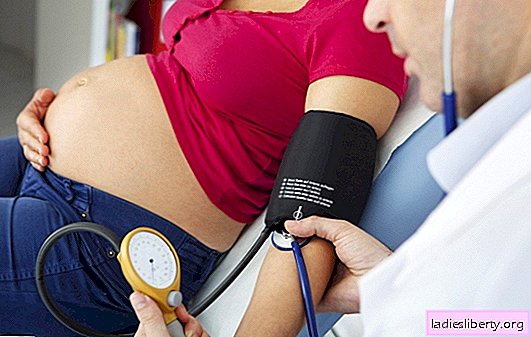
Women who develop preeclampsia during pregnancy have a three-fold risk of developing vascular dementia in old age. The results, published in the British Medical Journal, were obtained in a Danish study.
Why does preeclampsia increase the risk of dementia?
Preeclampsia, which affects 3-5% of all pregnant women, today is explained by the pathology of blood vessels in the placenta. Hypertension and proteinuria, which characterize preeclampsia, also affect the heart and blood vessels of pregnant women.
Previous studies have already shown that women often develop hypertension, stroke, and type 2 diabetes.
Pregnancy is sometimes called a stress test for blood vessel health, which is considered a failure with preeclampsia. Other consequences of preeclampsia may be cognitive impairment and vascular dementia.
A team led by Heather Boyd from the Institute in Copenhagen estimated data from more than 1.178 million Danish women. Over the next 21.1 years, 1,728 women developed dementia. This figure is relatively small, because at the time of the examination, women were only 49 years old.
An increased risk of vascular dementia was apparent in the study.
The incidence in women with a history of preeclampsia was 1.44 cases per 100,000 people. In women without preeclampsia, dementia occurred in 0.47 cases per 100,000 people.
In women, the risk increased by 3 and a half times. The association of preeclampsia with late dementia (onset of the disease after 65 years) was especially evident. However, even for dementia with an early onset, the relationship was still statistically unambiguous.
For Alzheimer's, only a slight increase in risk was found.
This is consistent with the current picture of the pathogenesis of Alzheimer's disease. It is associated with a disorder of the cranial nerves, not the blood vessels.
Although an observational study cannot conclusively prove this association, the results underline the current assumption. Boyd strongly recommends that women avoid cardiovascular risk factors - obesity, hypertension, hyperlipidemia, and hyperglycemia. It is recommended that you visit your doctor regularly at a later age.
What is more dangerous preeclampsia?
Scientists in Rotterdam examined 200 women who were diagnosed with severe preeclampsia during pregnancy. Systolic blood pressure was not less than 160 mmHg, and diastolic blood pressure was not less than 110 mmHg. Then they controlled blood pressure over the next year, both in outpatient and in clinical settings.
It turned out that more than 41% of women had too high blood pressure during the year after pregnancy.
Latent hypertension was the most common (17.5%), which means that the doctor’s blood pressure levels were normal. Outside the doctor’s office they were too tall.
14.5% suffered from persistent hypertension, 9.5% - from white coat hypertension. The latter occurs when blood pressure in the doctor’s office is higher than outside the clinic. If doctors measured blood pressure only in a clinic, they would miss about half of women with hypertension.
In 46% of women, blood pressure did not fall enough between day and night.
Hypertension at night increases the risk of heart disease, stroke, and death. The disease affected 42.5% of women in the study.
The results show that women suffering from hypertension during pregnancy should measure their blood pressure after childbirth. It is important to monitor not only blood pressure in the doctor’s office, but also at home.
During pregnancy, women are 7 times more susceptible to the development of cardiovascular diseases. Scientists emphasize that the connection between dementia and preeclampsia is mainly due to vascular diseases.
The authors also indicate that only European women with a high level of education were included in the study.
If high blood pressure is detected, it is recommended that you consult a doctor. Untimely treatment of preeclampsia increases the risk of mortality and the occurrence of complications of varying severity.











